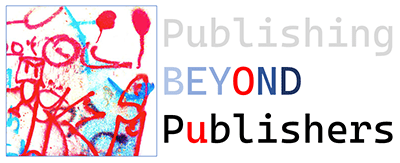Launching ReBoot 2021: The Repair Shop. Assessing the damage and fixing it!
After a widely received first season in fall 2020, with four Preparations Workshops and a 6-hour state of the industry debate on October 13 – attended by 200 experienced industry leaders from 28 countries in a unique mix of heads of worldwide corporations and small local innovators –, it is time to move on.
In the first half year of 2021, ReBoot proposes a systematic assessment of the damage, based on a rich survey of multiple data sources and intertwined with a structured set of workshops, with the goal of comparing lessons, experiences, and proposed solutions.
ReBoot will focus on how authors, publishers, suppliers, and retailers:
- Operate in highly dynamic markets, defined by changing consumer habits and mounting competition for consumers’ attention and budgets;
- Manage seamlessly multiple formats, business and distribution models, while new entrants from other media industries approach the same audiences;
- Learn to directly target consumers, build sustainable communities around more granular audiences, and attract the best creative talent for books and readers.
The Repair workshop calendar foresees three units of 2-4 hours in the first half year of 2021:
- 25 FEB 2021: Assessing the damage, and identifying the key lessons for looking forward;
- 21 APR 2021: How to fix what is broken, and who can offer the best tools for that aim;
- 15 JUN 2021: Navigating to new islands and sailing with the winds of change.
You can subscribe to all three ReBoot units plus get permanent access to the ReBoot Box, which contains rich and relevant documentation plus video recordings of all sessions, at a flat rate of € 149, or buy tickets for each unit separately at € 99.
We invite sponsors and partners to engage with ReBoot on a continuous basis, with customized cooperation packages starting at € 5,000 for 1HY2021.
Find out about all details, and register right away at www.rebootbooks.org.
Follow us for updates on Twitter at @rebootbooks
You can recap ReBoot in fall 2020 in 3 blogposts:
Post-pandemic strategies? Fix the supply chain of books!
Two seemingly separate pieces of news came in this morning: The International Pulishers Association released a survey on „Covid-19’s impact on global publishing„, based on a broad roundcall among their members worldwide. And perhaps surprisingly to many observers, the first challenge that the IPA study adressed was NOT bookshop closures due to lockdown – but an article on how „Supply Chain Disruption Leads to Ecosystem Stress„!
Incidentally, German trade media like Börsenblatt and buchreport reported yesterday that one of the leading scientific publishers, Springer Nature, ditches their German logistics partner KNV Zeitfracht, and switches across the border to the Dutch „Centraal Boekhuis“ (CB), a collaborative initiative owned by some 800 Dutch publishing stakeholders, with a history going back 150 years, and active in both the book and – since a few years – in the health sector.
The IPA report summarized: „Publishers operate in a complex ecosystem with
printers, logistics providers, distributors, and retailers, meaning the supply-chain effects of COVID-19 control measures caused significant supply disruption.„
KNV Zeitfracht had indeed drawn criticism recently for underperforming in the strained times of Covid-19 challenges.
But there is a much deeper, and more fundamental underlying issue which gained wider visibility only now.
Under pandemic conditions, with consumers migrating to online and digital purchases, especially smaller independent bookstores suddenly had to rely dramatically on their online capacities for their survival. But many discovered not just limitations in their own digital setup. The challenges were multiple:
- Ordering books from wholesalers became fragile;
- Catalogues of titles available for ordering by their clients had many blind spots;
- Delayed delivery to the costumers required apologies;
- Wholesalers like KNV in Germany suddenly announced plans to cut down on their traditional service of daily delivery, to just bringing orders to stores only twice a week.
To give just one example from my own customer experience: When I ordered, as a gift to the daughter of friends, a hardcover copy of the English original of the new Stephenie Meyer book „Midnight Sun“ – certainly not an exotic title -, the online order was confirmed by my favorite indie bookstore with a note of caution that they couldn’t give me a precise date for delivery, due to supply chain issues.
In return, for a publishing giant like Springer Nature, their market and customer base are global. The Dutch Centraal Boekhuis, Springer Nature said, will take care of all their distribution worldwide. National services alone are simply not good enough anymore.
All these highlighted shortcomings are not only an involontary PR campaign to the advantage of Amazon.com, wich hosts a multilingual, ever expanding catalog of available titles, ready to be served to consumers around the world.
It much more highlights the fault lines of what will shake up the foundations of the book business, in getting their post-pandemic strategies right.
Music or books? Both! Spotify goes audiobooks
Things tend to change quickly these days. In August, publishers across Sweden had a new, transformative customer knocking at their doors – Amazon.
The only surprise was, why that had happened not much earlier. For many years, Amazon had been expected to go into the Swedish online retail market with a dedicated Swedish website, which by now is live.
A few months later, another new entrant is calling, an originally Swedish, now global service for music and podcasts. „Spotify has entered the book industry’s battle for audiobook listeners“, in the word’s of the leading local publishing trade magazine, SVB.
The Spotify announcement is probably as big as the earlier news from Amazon, and not just for Sweden. In these times of profound transformation of everything throughout our societies, the Spotify – audiobook move means simply that an outsider is coming in the ambition to re-invent the one segment where the traditional book business has been growing in recent years, audiobooks.
And Sweden is a very particular market in that regard. It has been pioneering ebooks and audiobooks early on, by making these things different than in other countries. Ebooks were initially an almost exclusive service from libraries. You did not buy an ebook in Sweden, but rented it from your local library.
This opened the path for subscriptions. You don’t need to own that new crime novel, or classic, or educational title. Accessing it, for a modest monthly fee, was good enough.
While in other parts of the world, book people insisted religiously that subscriptions would never work with readers, the Swedish start-up Storytel created – and in the meantime expanded internatonally – just this, a thriving subscription service for et first ebooks, and then audiobooks. Storyel was one powerful driver, and innovator in the good old book trade.
But the upside-down does not stop there. Spotify, the music company, promises to re-invent the very format of books that you can listen to: „‚We talk about trying to develop the story in different ways, and are quite unlimited in the idea of what it could be‘, says Johan Seidefors, Nordic content manager at Spotify, when he is asked if Spotify makes audio books“, SVB reports today, and Seidefors adds that Spotify „will work to make room for new formats.“ There you go publishers.
Of course this will bring up many tricky questions, starting with how authors‘ compensation will be handled by Spotify, which is challenged regularly for their royalty model from those musicians who are not topping the charts.
And we can, from our own research, clearly predict also that marketing digital works, be they ebooks or, even more so, audiobooks, and again notably those consumed through a streaming or subscription function hugely differently from traditional books. See numbers and charts in our two brand new Digital Consumer Book Barometer studies on German language countries (Germany, Austria, Switzerland), and on Brazil.
We will keep monitoring these developments – so stay tuned, and subscribe to our newsletter, and follow us on Twitter @wischenbart and @rebootbooks .




